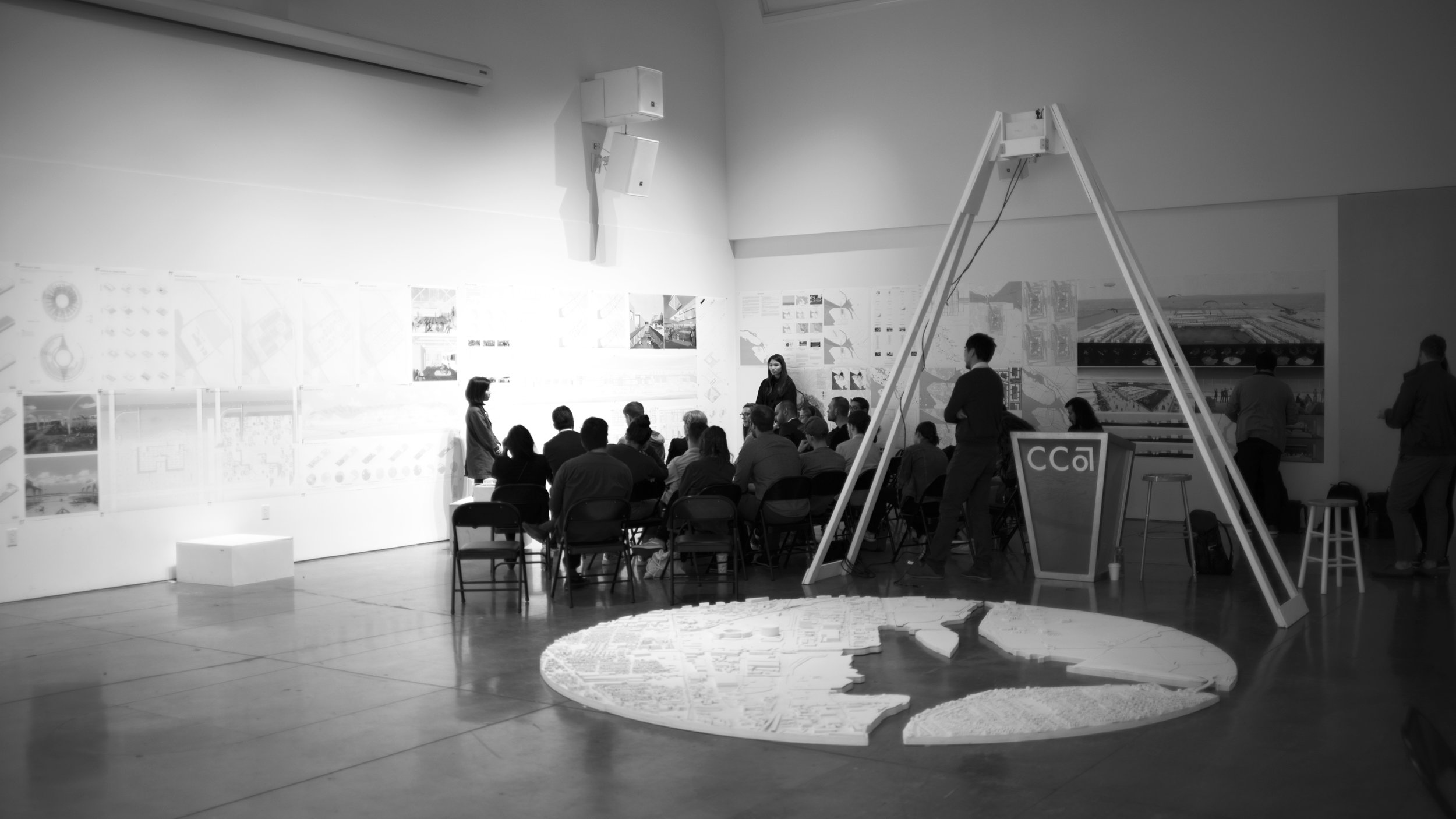Reformatting Land
Project: Reformatting Land
Class: Advanced Studio, California College of the Arts, Architecture Division
Date: Spring 2018
Instructors: Neeraj Bhatia
This studio will interrogate the capacity for architecture and infrastructure to create resilient cities—ecologically, economically, and politically. The studio will work on a real mega project tied to the Resilient by Design | Bay Area challenge, which will address sea-level rise and housing equity in the Bay Area. Students will engage with community groups, experts, and the larger design team, which includes UC Berkeley, AECOM, RBD Fellow and CMG Landscape Architecture. This unique opportunity for the Bay
Area will provide a voice to students on how to shape the future of the Bay and re-frame our relationship to climate change. The studio will take on a visionary yet implementable approach to resilience, merging expert research within disciplinary questions of urban form, organization, and evolution.
Two of the most pressing urban challenges facing the Bay Area in coming years include rising sea levels and rising house prices. While seemingly unrelated, both challenges require us to rethink how we deploy, evaluate, organize, and urbanize land. Relatedly, these demands are new opportunities for us to consider how ecological and urban processes find synergetic relationships. This studio will examine different states of land and water to unpack how design can create more equitable and resilient cities. Understanding resilience as the capacity to adapt or transform to known as well as unforeseen circumstances, the studio will employ scenario building through different scales of time, to test how architecture can empower people and environments in the future — even if these futures are difficult to envision. We will inter-face with stakeholders and experts to create new templates of urbanism that examine the co-evolution of natural and artificial systems. We will examine how to reformat land to:
•Create security against rising sea levels
•Create more robust ecologies
•Create new value for equitable development
•Examine new models of ownership and living
One of the challenges when working on issues related climate change is the vast scale of the problem at hand and an uncertain timeline—making it difficult for designers to have clarity on how and where to act. The looming crisis often conjures design paralysis (“I don’t know what to do”) or denial (“I don’t want to act, someone else will figure this out”). Our current moment could be described as being one wherein society at large is waiting for corporations such as Tesla to create new hardware that we can swap out in the background of our lives and continue to live as we have. This denial, however, we realize can only be sustained for a few more years. While climate change seems abstract and without a definite timeline, there are growing realities that face us, despite several things remaining unknown. Within this moment, it is often easier to turn to technical solutions or to understand these issues as problems to be solved. We must remember that the crisis of changing climates is first and foremost a cultural issue that re-quires us to adjust daily habits, lifestyles, and our relationship to resources. This is ultimately a question of design.














